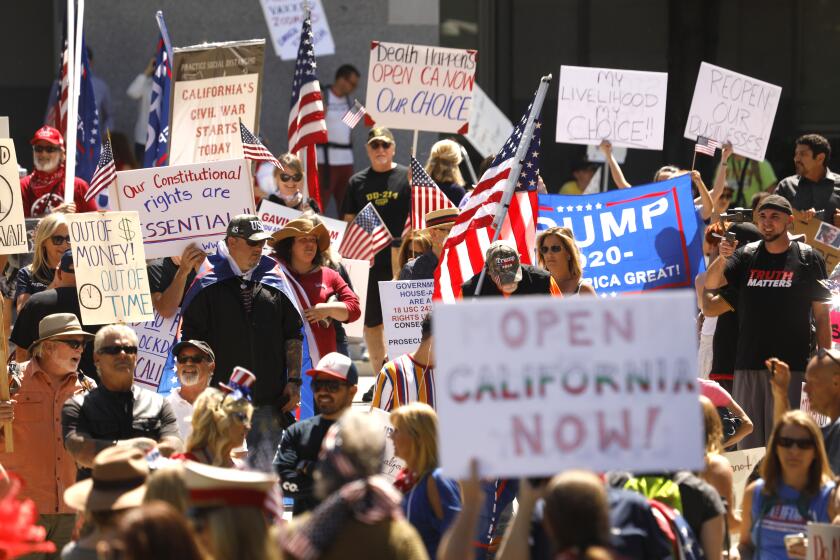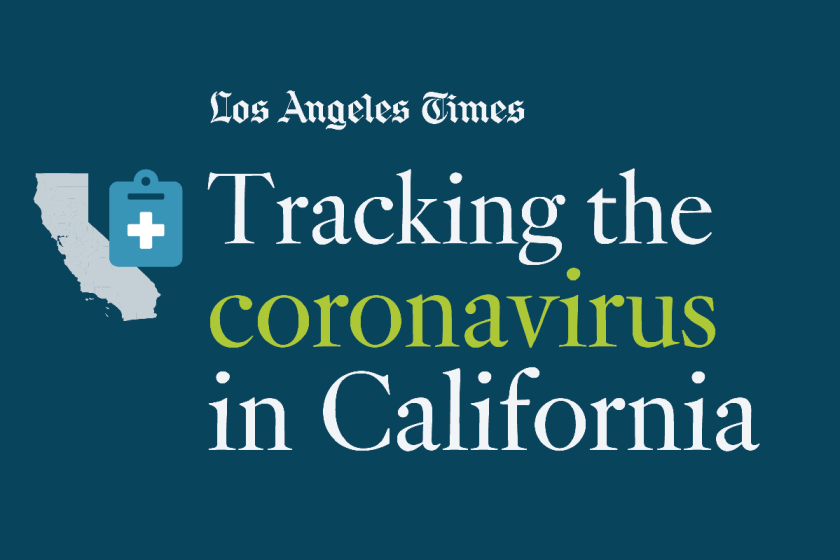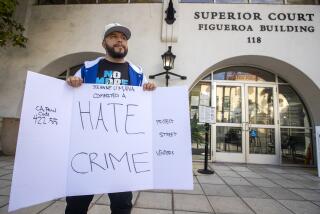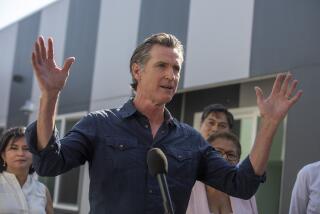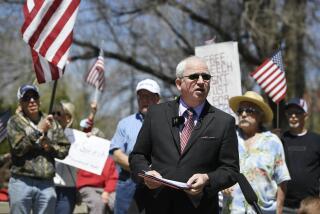Lockdowns crippled his ‘bouncy house’ business. Nearly bankrupt, he’s pushing back
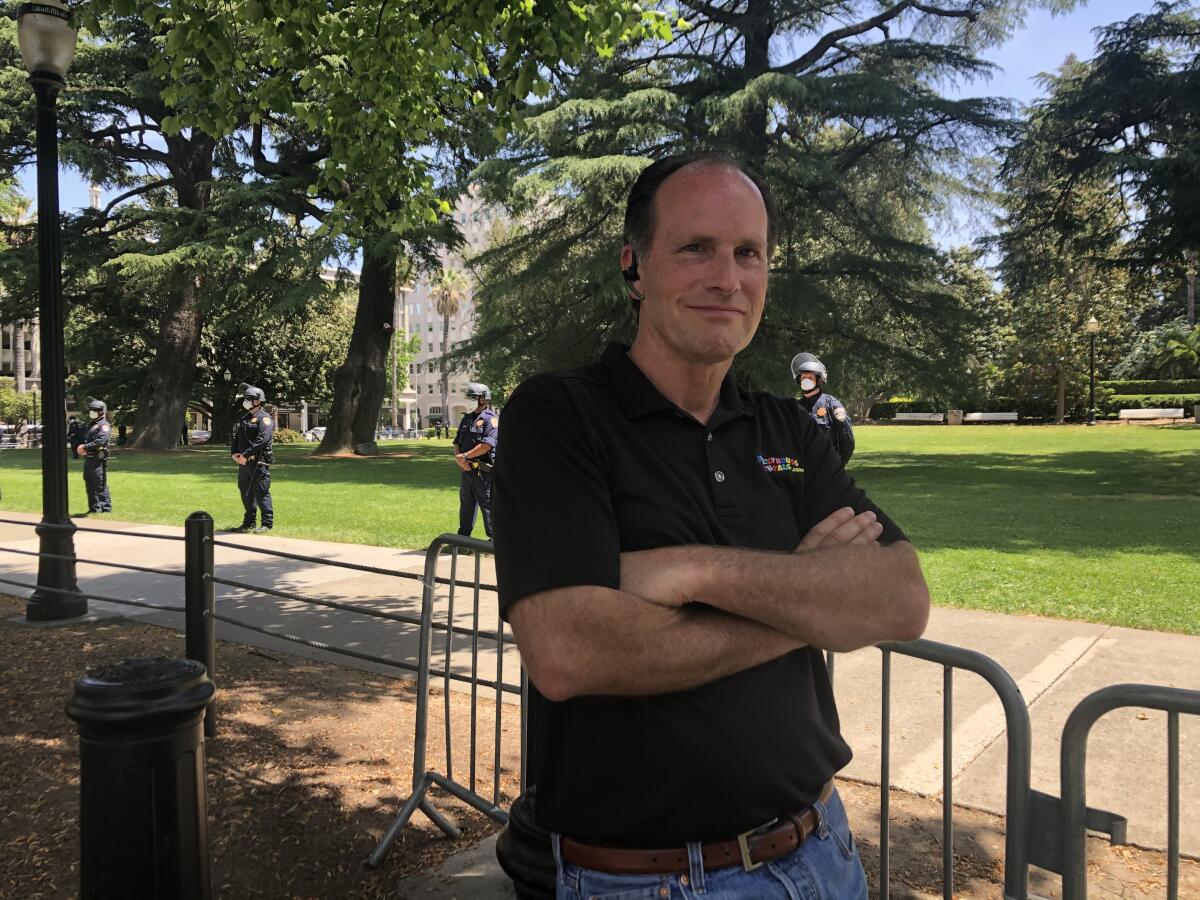
ROSEVILLE, Calif. — Jim Edmonds can’t say what led him to join an unauthorized protest against the coronavirus lockdowns at the state Capitol in May, except fear and boredom and a need to do something as his decade-old business — renting out inflatable jump houses — collapsed in a matter of days.
But he can recall how he felt when California Highway Patrol officers grabbed him, pinned his arms behind his back with plastic zip ties and marched him into a holding pen in the building’s basement.
“I’m the bouncy house guy, for Chrissakes,” he remembers telling them, at first incredulous he was being arrested, then angry. “It was surreal.”
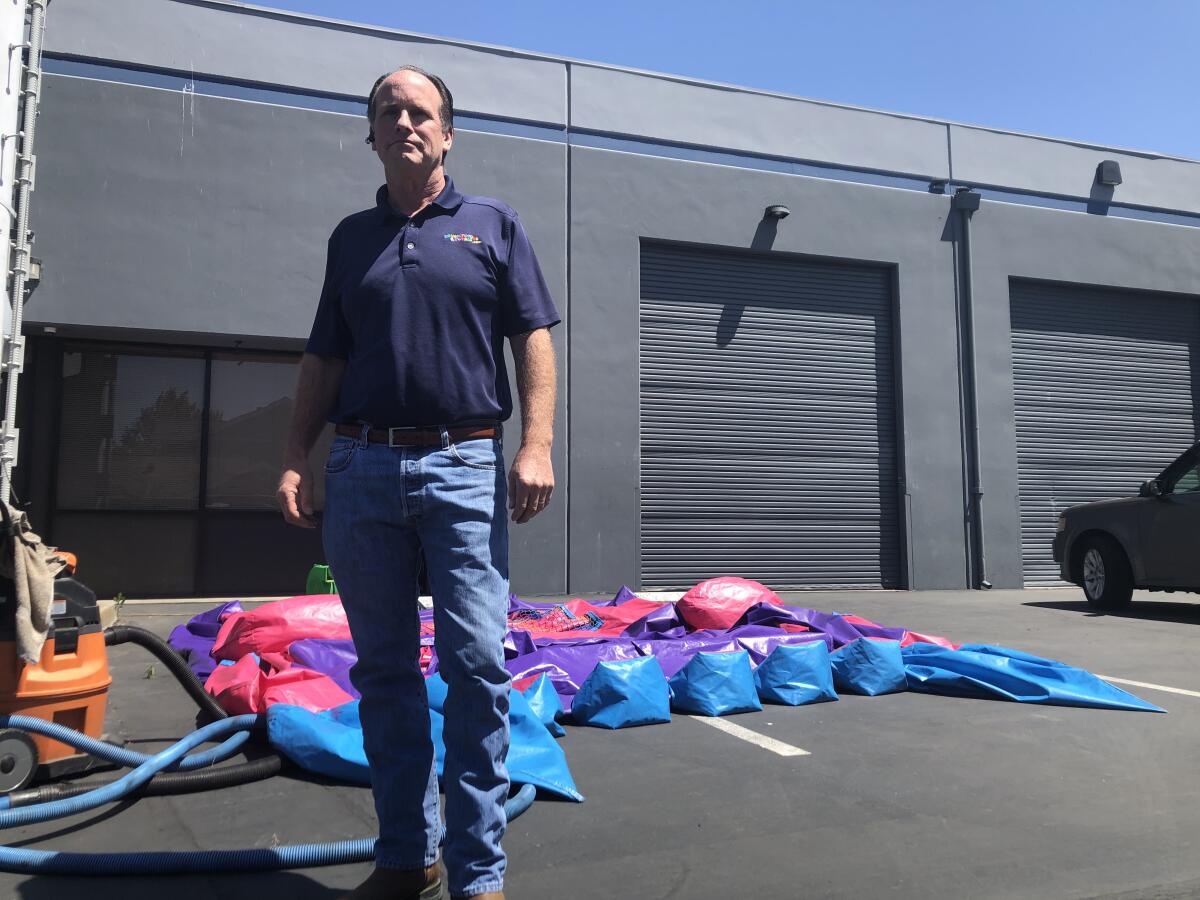
Much of life has become baffling to Edmonds and other small-business owners nationwide since the COVID-19 pandemic prompted widespread government restrictions. More than 900,000 Californians run their own small business, accounting for roughly 10% of the state’s workforce, a figure that jumps to 14% in Los Angeles. The party services industry has been hit particularly hard because of bans on gatherings.
Without work, Edmonds, like many others, is fighting through empty and anxious days. Increasingly desperate but feeling powerless, he has turned to political activism, “a world that I know nothing about,” he said, but one that in just a few weeks has shifted from a radical thought to the only reasonable path he sees.
Edmonds is, by his own description, in a dark place that has “forever” changed how he thinks about life and government, leaving him looking for answers among the pastors, anti-vaccine activists and right-wing groups that have embraced the shutdown protests.
Though many of the rallies across the state have been filled with parishioners brought in on buses or people with years of social agitating under their belts, Edmonds represents a different demographic that has been largely lost in the politicization of the pandemic — an average Joe pushed to extremes.
“I was searching for something,” said Edmonds, owner of Bouncey House Rentals in Roseville. “I was just like, ‘What do you do?’”
Edmonds’ problems began when a trickle of rental cancellations in February turned into a torrent in March, as customers grew increasingly nervous.
More bald than not and sinewy from years of moving his wares, Edmonds tried to reassure customers that his units were disinfected after every use — scrubbed with three cleaners including one used by hospitals. But with deaths mounting globally and awareness of the highly contagious illness growing, his guarantees fell on deaf ears.
By the time Gov. Gavin Newsom issued a stay-at-home order March 19, shutting him down in the middle of his busiest season, the scope of his losses was overwhelming.
With graduation parties and spring fundraisers, his 300 inflatables would usually be booked weeks in advance.
Instead, “at a time where we [would] have been taking in tens of thousands a week, we are not even taking in hundreds,” he said.
He had to return nearly $300,000 in deposits, wiping out his accounts. Alicia Correia, his bookkeeper, said he lost about 95% of his business.
If the pandemic-induced economic turmoil lasts past Memorial Day, about half of U.S. small businesses could be in danger of failing, survey finds.
Correia said Edmonds is a fighter and an optimist, but “he can’t help but be hurting inside.”
“Before, it was the stress of making all the deliveries, and now it’s the stress of making rent, feeding his family and such,” she said.
Edmonds laid off his 13 employees, stopped taking a paycheck, didn’t tell his wife how bad it was.
In April, he closed the shop for the first Saturday in its history. Normally, he was up at 5 a.m. on weekends, prepping crews to haul the units, hundreds of pounds each, to the impatient kids, church groups and parties that awaited. That day, he stayed in bed, unable to get dressed or eat.
By Cinco de Mayo, buying shrimp burritos for his kids was a financial stress, a “sickening” feeling, he said. He couldn’t even look at the books.
“I don’t need to know anymore because it doesn’t matter. It’s gone,” he said. “Can’t change it. Can’t fix it. Can’t build it back up. It’s just gone.”
He kept making sales calls, sending emails, trying to come up with alternative business plans. He pushed the “wacky wavy” balloon men used to lure customers into stores, but little was open. He offered up tents for drive-through medical clinics. Nothing helped.
Correia insisted he apply for federal aid, “another humbling thing for me,” Edmonds said, but nothing has come through.
“Look at this,” he said, gesturing around his empty office, where superhero memorabilia decorated the walls. “I am a professional planner and I can’t figure out what the next move is.”
Edmonds entered the jump-house business in a drug-induced haze after a shoulder surgery, he said. Recovering and on painkillers, he said, he dreamed up a business plan for inflatable rentals and unknowingly “drunk dialed” a manufacturer to purchase a bounce house. Three days later, a semi unloaded it at his curb.
He tried to hide it on the side of his real house, but it didn’t work. His wife, Becky, he said, was not happy with the $3,000 bill.
The couple lived in Silicon Valley at the time, and Edmonds ran his own catering and vending machine company, filling coin-op soda and snack dispensers for tech companies. Sometimes, money was so slim he’d need the change in a machine to pay for goods to restock it.
A few months after the bounce house arrived, he took it to the park with his then-2-year-old son. A police officer showed up, asking if he had a permit. Though the officer made Edmonds remove the bounce house, he asked if it was for rent.
“He said, ‘How much?’ and I said, ‘How much do you want to pay?’” he said.
Edmonds began a side hustle.
In 2008, his vending business popped with the tech bubble. “You go back to fill the machines and the whole company is gone,” he recalled.
He moved to Roseville, a suburb of Sacramento, and began building his rental company in earnest, his son now 5 and a newborn girl in tow. His next acquisition was a counterfeit Disney bounce house he found on Craigslist for $150, though he didn’t know it was a knockoff at the time.
“It was filthy” he said. He scrubbed it for three days straight, scooping out thousands of pine needles from its cracks. “All I saw was I could get it out for another $100 a week … and that’s a $400 raise for me.”
Soon he bought two more units, delivering them each to two parties a day by himself.
“It was exhausting,” he said, but he liked being the “bouncy house guy,” his arrival eagerly awaited.
“The kids just love it,” he said. “It’s such a feel-good.”
Last year, his company grew about 300%, he said, its best year ever. He bought out a competitor and increased his stock driving to Texas with a friend to pick up inflatables from a company that was closing. He had three people answering phones. It was fun and exciting, he said, and he remembers thinking there was no way it could get better.
“They took all that away,” he said, using brown fast food napkins to dab at tears. “And I don’t even know who ‘they’ is.”
At loose ends, he drove down to the Capitol on the last day of April, about 20 miles away, just to see what was happening. He didn’t find much, two men with protest signs. But he came back again the next day, and this time there were hundreds gathering for a “Mayday” rally.
Coronavirus pandemic widens racial and political divisions
He milled around the crowd in his black polo shirt, his logo stitched in bright primary colors on the front, watching a woman in a speedboat cajole the crowd into chants, checking out flag-waving protesters and eventually seeking shade as he began to develop a sunburn. Few, including Edmonds, wore masks.
He found himself leaning on a railing a few feet away from a line of officers in heavy padded vests with batons out. Looking around, he noticed protesters with flags on metal poles, “melon crackers,” he thought, realizing they could be used as weapons. He began to worry. The officers began pushing the crowd off the Capitol grounds — the event was not permitted and deemed a health hazard.
“I couldn’t get out of there at that point,” he said. “It all happened so fast.”
In the jumble, he bumped into an officer. Twice.
“I hear ‘Taken,’” he said. “And then six of them rush up on you…. I’ve seen people on TV when they get taken down and it’s nothing like that.”
In a holding cell inside the Capitol, he realized he wasn’t the only one arrested. Thirty-two others shared the space, including anti-vaccine activists who helped organize the event and a Riverside preacher who has become another leader of the movement in California.
Edmonds’ thoughts turned bleak. What would happen to him? Is this how authoritarianism begins, he asked himself, echoing the rhetoric of those who still rallied outside. Conspiracies on Facebook and the internet began to play in his head. He wondered if he could make a break for the door.
“For whatever reason, I am trying to get my head around why they would arrest me,” he said. “I run a bounce house company.”
Eventually, he was released with a citation. Rattled, he forgot to take it with him when he left.
At first, the arrest made him feel more powerless.
“It just showed me that a peaceful protest isn’t going to do anything at all,” he said. “What did we accomplish?”
In the next days, he felt unmoored and uncertain, he said.
“That’s the problem. Who am pissed at?” he wondered. “Who is there to be pissed at? Is it the senators? Is it the governor?”
He spent more time online, listening to the protesters and trying to find clarity in a rabbit hole of conservative internet information. He likes some of what he’s hearing, he said. He believes the virus isn’t deadly enough for most to warrant the shutdowns. But he’s concerned about some fringe elements — “like crazy folks who are talking about taking up arms,” he said.
The latest maps and charts on the spread of COVID-19 in California.
Despite his initial misgivings about protests, he showed up again at the Capitol a week after his run-in with the law, again not quite sure what drew him. He kept some distance, leaning against another railing in front of a line of officers, this time on the other side of it.
He plans on coming again this Saturday, when the same organizers hope to draw another large crowd, and he’s turned to organizing himself. He contacted a group of hairdressers who staged a protest Monday and offered to attend theirs if they would come out Saturday. He’s also trying to organize local churches to hold a prayer vigil in front of Newsom’s house.
“The activist lifestyle, if you want to call it, that’s just a world I never would have gotten into,” he said this week. “This is all very strange to me.”
Edmonds said his wife “wants me to stay quiet,” and is worried people will call him a Trump supporter. He is.
But “this has nothing to do with Trump,” he said. He believes the protests are “causing some people a little bit of pressure” and helping to reopen California more quickly. This week, Newsom allowed some businesses across the state to open. It gives Edmonds hope, but he does not know if the bouncy house business will ever fully recover.
“It has to, I mean, doesn’t it?” he said. “How long can I keep this going?”
More to Read
Sign up for Essential California
The most important California stories and recommendations in your inbox every morning.
You may occasionally receive promotional content from the Los Angeles Times.
